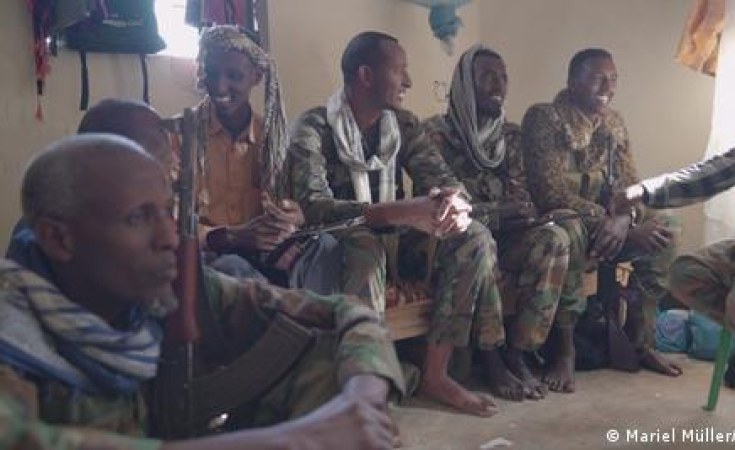Mogadishu — The Somali government has offered amnesty to al-Shabab militants amid an ongoing military offensive in central parts of the country. The move is seen by some analysts as a way to remove al-Shabab fighters from the battlefield, thereby weakening the insurgent group.
The amnesty offer is part of a widening approach by the Somali government in its fight against the al-Shabab militant group. The government has deployed the military, targeted financial networks and waged an ideological battle against the group.
The announcement by the National Counter Terrorism Center to open doors for defections follows President Hassan Sheikh Mohamud's remarks that al-Shabab leadership was not willing to negotiate with the government.
Abdiaziz Hussein Issack, a security analyst with Hamad Bin Khalifa Civilization Center, said the amnesty offer to al-Shabab is a strategic tactic by the Somali government to further weaken the group.
Already, he said, there have been reports of discontent among the foot soldiers that they are not getting support from the top leadership as the government forces pile pressure on them.
The federal government launched a large-scale offensive against al-Shabab in the Mudug and Galgaduud regions in central parts of the country.
Clan militias also provided support to the forces, which, the government said are on course to finish the first phase of the operation. Issack says amnesty might also provide government forces with intelligence about the group.
If well-coordinated, the amnesty could be a plus for the government, he said. If the fighters desert their positions, the government forces will not only face little resistance but will also benefit from intelligence from the defectors.
Despite the expected positive outcomes, some analysts think an amnesty offer may not tilt the scales of the war. Abdirashid Farah Ali, a security and political analyst at Linking Governance, a policy and strategy consultancy in Mogadishu, warned not to expect too much from the amnesty offer.
He said there is no guarantee the amnesty will net a major gain for the government. There might be just a few defectors out of the thousands of soldiers, and while it has a psychological effect on the war against al-Shabab, it may not change the course of the war.
Several senior figureheads in al-Shabab have defected in the past. The current minister for religious affairs was the founder and the second most senior leader before he defected to the government in 2017 and he's currently leading the ideological warfare against the group.
Ali says if the amnesty does work and several militants defect, it might force al-Shabab to the negotiating table.
He says major defections are unlikely. But if there are some defections, al-Shabab might be forced to consider negotiation rather than face humiliation. So, there might be a good opportunity for the government to pursue amnesty.
Somali President Hassan Sheikh Mohamud has been leading the war campaign in Galmudug state in central Somalia for the last two weeks. The two-time leader has staked his presidency on the annihilation of al-Shabab.
As he prepares to launch the second phase of operations in the south, he faces two tasks: an ongoing al-Shabab build-up and tough terrain. But should he succeed in getting defectors, the war might work in his favor.


